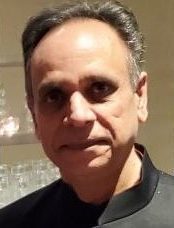By Upendra Mishra
BOSTON—I have been fascinated by dialogues between King Janaka and sage Ashtavakra in Indian mythology, especially about Ashtavakra’s simple explanations of the Self that does not change and remains the same throughout.
So, recently when I read an article based on a research by Miguel Rubianes of the Complutense University of Madrid in Spain, I was taken a back by the headline: Essence of person remains same throughout life.

In this unique study, Rubianes and other researchers show that the essence of an individual remains largely stable over the years.
“In our study, we tried to answer the question of whether we are the same person throughout our lives,” said study author Rubianes. “In conjunction with the previous literature, our results indicate that there is a component that remains stable while another part is more susceptible to change over time.”
The ‘continuity of the self’ — the capacity for self-awareness and self-recognition– remains stable whereas other components such as physical aspects, physiological processes and even attitudes, beliefs and values are more liable to change, according to the study.
Even components such as personality traits tend to change slightly over the years, but “the sense of being oneself is preserved, improving our understanding of human nature,” Rubianes says.
The study, published in Psychophysiology, also determined how long it takes the brain to recognize our own personal identity as distinctive compared to others: around 250 milliseconds.
“This study demonstrates the importance of basic and clinical research alike in the study of the role of personal identity, and may play a fundamental role in psychological assessment and intervention processes,” notes Rubianes.
Now, coming back to Ashtavakra and Janaka story about the Self, let us first talk briefly about the grand king Janaka and the sage. Ashtavakra literally means someone whose eight limbs are bent or handicap. Ashtavakra had an in-depth understanding of the Self and summarized the Advait (nondual) philosophy beautifully in a small text called Ashtavakra Gita.
Janaka was a great king who ruled his kingdom efficiently and enjoyed all the luxuries and pleasures life. Still, he was unattached to everything as if he possessed nothing. He engaged himself with spiritual discourses and was interested in both teaching the wisdom of life to those wanted to learn from him and learning from those he thought were worth learning from.
One day, Janaka had a dream in which he saw himself as a beggar. In his dream, Janak found himself in a different kingdom and hungry. He looked around for food tirelessly and when he finally found the food and was about to start eating, a couple of animals came and hit his food. The food spilled all over the ground, and then he woke up.
Given his inquisitive nature, Janaka wondered what was real: was the dream true in which he was a beggar because it felt so real in the dream? Or, was the post-dream world real where he was the king while he was awake. He wanted to know the answer. The next day, he met his guru Ashtavakra, and told him about his dream and asked: which one was real: the dream or the real world?
To Janaka’s surprise, Ashtravakra said: Neither. Neither the dream was real nor the current current world. Janaka wondered how was that possible because he saw the dream and he sees the current world as well. In one, he is beggar and in another he is a king.
Ashtravakra said the real thing never changes and remains the same all the time. When dream was there, this world did not exist; and now when the world exists, the dream does not exist.
Then, what is real? asks Janaka.
“You,” answered Ashtavakra. You were present in the dream and you’re present now. Your Self was present in both, and thus only you, the Self is real.
When one is born, the same person experiences life as a toddler, as baby, as a teenager, as an adult and as an old person. Only things that change are our body and experiences and memories. “Self” as an experiencer of all this does not change.
In Ashtavakra Gita, the sage explains the concept of Self and awareness beautifully, saying that we are not our body but just the awareness.
“Set your body aside.
Sit in your own awareness.”
“I am not the body.
Nor is the body mine.
I am awareness itself,
Bound only by my thirst for life.”
“Rest in your own nature.
Set yourself free.”
“Never upset your mind
With yes and no.
Be quiet.
You are awareness itself.”
“Live in the happiness
Of your own nature,
Which is happiness itself.”
(Mr. Mishra is managing partner of the Waltham, MA-based integrated inbound marketing and PR firm The Mishra Group. He writes about his three passions: marketing, scriptures and gardening.)
















